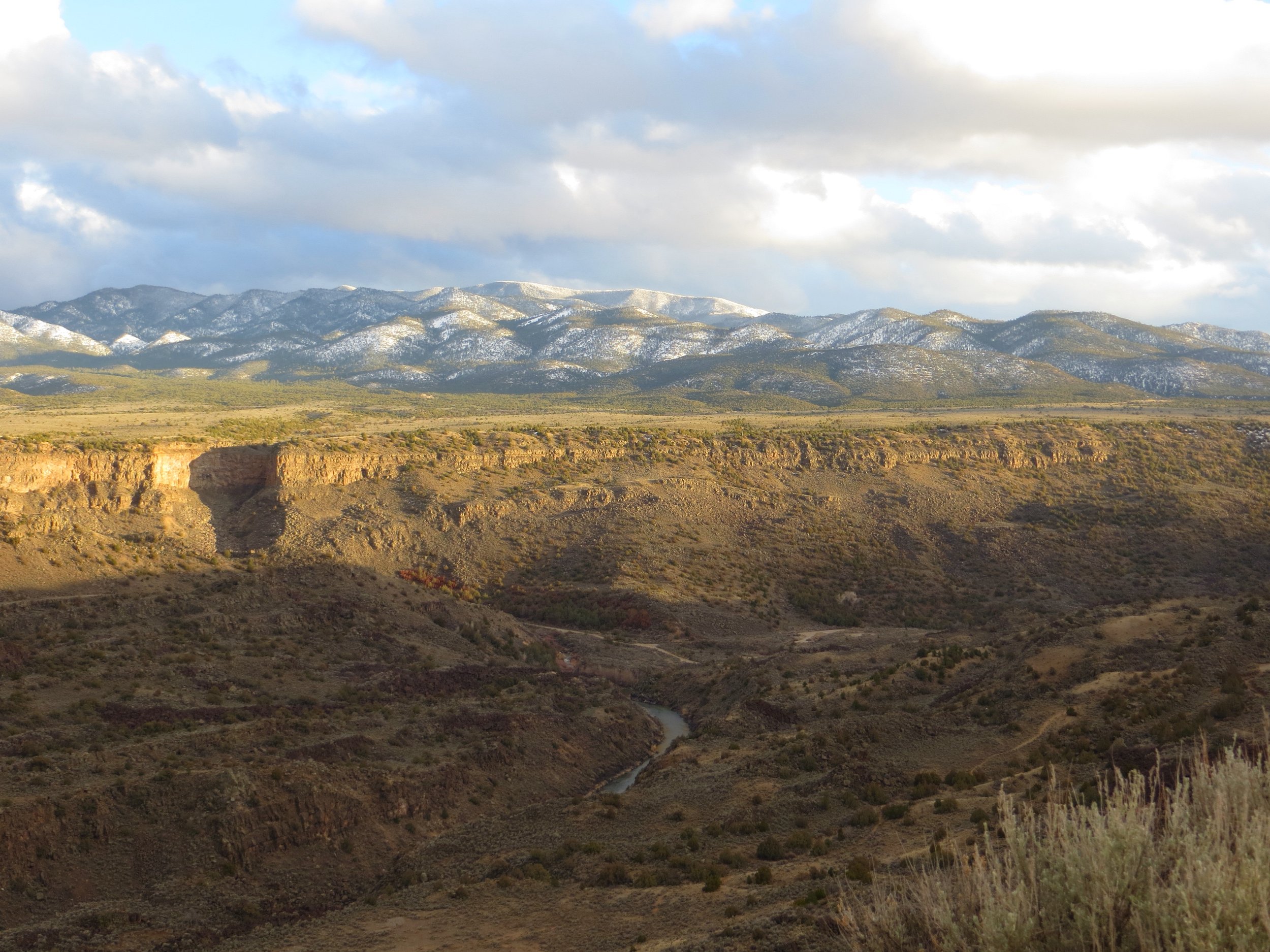
My Portrait of Hafiz
As with most things that influence and garner attention, there have been many misunderstandings regarding my work with Hafiz and other great mystic poets over the years. I wrote an essay in 1996 that was first published in my book, I Heard God Laughing, titled "Releasing The Spirit of Hafiz" to address those misunderstandings, as well as offer insight into what my life's work and mission has been and continues to be. I share that essay here, along with additional thoughts.

The mountains hint at our beauty.
— Daniel Ladinsky
“Know the true nature of your Beloved, in his loving eyes, your every thought, word and movement is always beautiful.”
My work with Hafiz began on an early morning walk in the countryside of central India, on a beautiful tree-lined road that leads to a place called Meherazad. This small, private residential community near the city of Ahmednagar was the home of the great spiritual Master, Avatar Meher Baba, until his passing in 1969. A small group of the Master's lifelong companions continue to live and work there, surrounded by a remarkable atmosphere of love.
I was walking with a man whom I have come to know as a teacher, a brother and a friend, a man who had been a member of the Master's circle since the late 1930s. On this particular morning, we were discussing Hafiz, who was Meher Baba's favorite poet. Though Hafiz lived in the fourteenth century, his verses are still immensely popular throughout the Near East and India. His insight and compassion, his subtle, expressive language and his deep reverence for beauty in all its forms have made him a favorite poet of lovers, and especially of lovers of God. The Sufis say that Hafiz loved so fully and so well that he became the living embodiment of Love. Meher Baba called him "a Perfect Master and a perfect poet."
Poetry was in the air at Meherazad that week. The day before our walk, we had listened to a program of marvelous English translations of Rumi, another Persian master poet, who lived a century before Hafiz. Now, as we walked, I turned to my mentor and companion and candidly said, "Compared to those splendid versions of Rumi we heard yesterday, the poetry of Hafiz can appear so pale in English! How can this be, when Meher Baba says that Hafiz is such a great poet?" He replied, "Baba has said it is because no one has yet properly translated Hafiz!" As soon as he said that, I was surprised to hear myself say, "I can do that!" That night, though I did not (and do not) know the Persian language, I wrote my first version of a Hafiz poem, working from a literal English translation.
The poems of Hafiz are mostly short love songs called ghazals, each one about the length of a sonnet. Scholars disagree about the exact number of poems that can be authenticated, but there are no more than eight hundred. Compared to Rumi and others, this is a tiny body of work. However, Hafiz created his poetry in a way that permits many kinds of interpretation. Persian is a flexible and mutable language, and Hafiz was an absolute master of it. Persian-speaking friends say that in some of his poems each word can have seven or eight shades of meaning and a variety of interpretations. A single couplet can be translated many different ways, and each one would be "right." It is my understanding that when Hafiz created his poems, he often spoke them or sang them spontaneously and his companions wrote down the versus later. Even if one does not know Persian, it is easy to appreciate the rhythm and music of his "playful verse" when one hears it recited aloud.
I quickly discovered that even in English, a single Hafiz poem, often a single couplet, could be approached from many points of view. A single stanza of Hafiz could generate whole families of independent poems in English, each exploring some aspect of the original. One might call the results "renderings" or renditions of Hafiz, rather than "translations." To "render" an artistic work means to interpret, to express, to realize. The word can also mean "surrendering" and "yielding"— in this case, opening to the guidance of the spirit contained within the poetry.
These “renderings” are based on a remarkable translation of Hafiz by H. Wilberforce Clarke, originally published in 1891. I work from a beautiful two-volume, 1011-page edition of Clarke's work, recently republished in Iran. I also borrow and shape ideas and thoughts from a few of the many other available translations of Hafiz, and include a bibliography of resources in each of my books.
For hundreds of years, people have struggled to find ways to reflect in English the sweetness and profundity of Hafiz's poetry. Some translators have tried to reproduce the rhythm, meter and rhyme of the original Persian, often bending and twisting English into strange and unfamiliar configurations to do so. Such careful efforts to honor the form of the poetry can sometimes ignore or violate the spirit of Hafiz— a spirit of infinite tenderness and compassion, of great exuberance, joy and laughter, of ecstatic love and fervent longing for his Beloved, and of wonder and delight at the divine splendor of the universe. I wanted to find ways to release that spirit in our own language.
Thus my poems are not "translations" in any traditional sense. They are not intended to be literal or scholarly or even "accurate." But I hope they are True— faithful to the living spirit of this divine poet. And I hope they are helpful. I have wept over many of these poems as they explored theological heights and mixed with our heart's beautiful, everyday emotions. The common is applauded and revealed as sacred. There is wonderful wit in some lines. The playful is turned loose and so is intelligence. The hallmark of Hafiz is to create a bond with his reader, and then offer his hand, when one might most need it. Hafiz was a true master in every sense of the word. A dear friend to any in spiritual need. Only the remarkable can do justice to him. I feel one has to take great liberties, at times, from some prevailing scholarly views of Hafiz to accomplish that; one's work then becomes controversial and vulnerable to criticism. What to do? So-called scholarship in regards to Hafiz can, it seems to me, greatly compromise his spirit and make him appear far less than I have seen and know he is.
Some have suggested I call my poems "Hafiz inspired" rather than "versions" or "renderings." That word inspired has always seemed a step up, if you will, for it in part means "breathed into by the divine." Well, all that seems so intimate and private, but maybe that is exactly what happened, and now I am just trying to exhale light— some gods or God, the soul of Hafiz— onto the page the best I can.
What can I say to my dear Master, Meher Baba, for all his help and guidance? Whatever truth, beauty, laughter and charm you may find in my words, I would say is a gift from him, the Avatar.
Daniel Ladinsky
Follow that path where your wings have most clapped.
This
Sky
Where we live is no place to lose your wings
So love, love,
Love.
— Hafiz